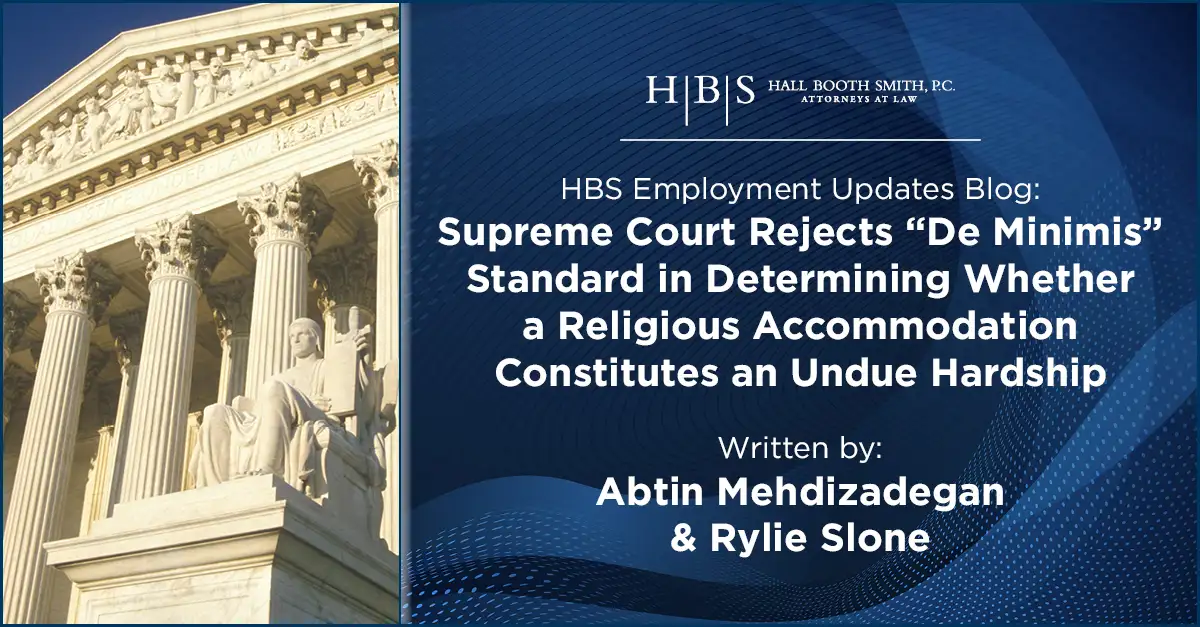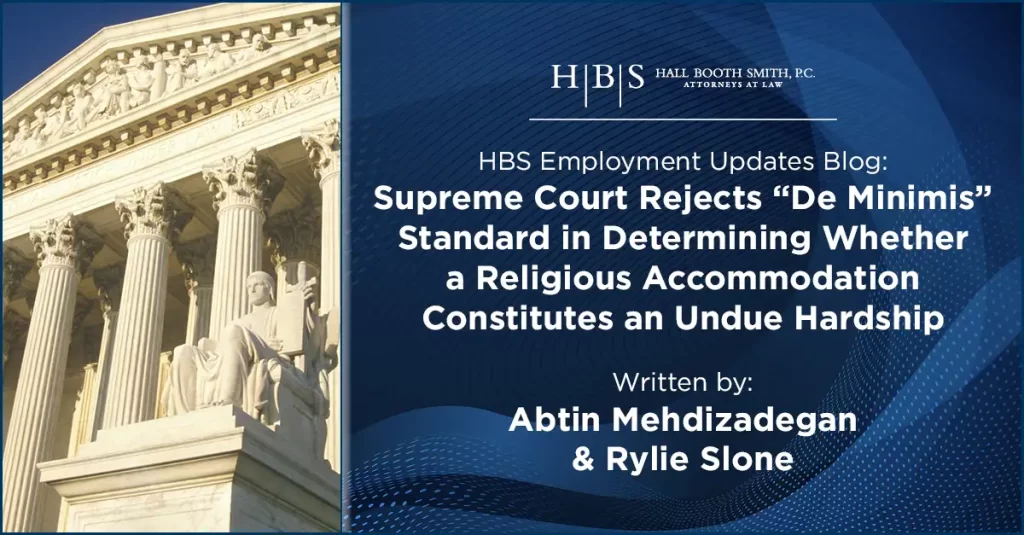
Supreme Court Rejects “De Minimis” Standard in Determining Whether a Religious Accommodation Constitutes an Undue Hardship

On June 29, 2023, the Supreme Court of the United States issued a landmark decision in Groff v. DeJoy, Postmaster General that will require employers nationwide to rethink the approach to religious accommodations under Title VII of the Civil Rights Act of 1964.
This case involved an Evangelical Christian who refused to work on Sundays due to his religious convictions. His employer, the United States Post Office, issued progressive discipline in connection with his Sunday absences in reliance on the prevailing view that anything more than a de minimis cost would constitute an undue burden for which an accommodation is not required.
The employee eventually resigned and filed a failure-to-accommodate claim under Title VII’s prohibition against discrimination on the basis of religion. The Court rejected the de minimis standard and held that “Title VII requires an employer that denies a religious accommodation to show that the burden of granting an accommodation would result in substantial increased costs in relation to the conduct of its particular business.”
Specifically, the Court held that an “undue hardship” exists when the burden to provide a religious accommodation is substantial in the overall context of an employer’s business, which is a fact-determinative inquiry that considers factors such as the accommodation at issue, the practical impact of the accommodation, the size of the employer’s facility, and the employer’s operating costs.
Notably, the Court cautioned that the impact of an accommodation on coworkers, being forced to operate short-handed, or incurring additional costs associated with premium and overtime rates would alone be insufficient to establish an undue hardship unless the employer would incur a substantial increase in costs in the overall context of its business.
In the wake of Groff, employers must carefully consider religious accommodation requests and holistically assess whether an accommodation would constitute an undue hardship.
Disclaimer
This material is provided for informational purposes only. It is not intended to constitute legal advice nor does it create a client-lawyer relationship between Hall Booth Smith, P.C. and any recipient. Recipients should consult with counsel before taking any actions based on the information contained within this material. This material may be considered attorney advertising in some jurisdictions. Prior results do not guarantee a similar outcome.
About the Authors
Little Rock Partner Abtin Mehdizadegan represents employers in traditional labor and employment law matters. He has extensive, high-stakes experience defending businesses in class and collective action lawsuits, employment and wage and hour lawsuits, labor grievance and arbitration proceedings, business disputes, products liability defense, and constitutional law litigation.

Rylie Slone is a Summer Associate at our Little Rock, Arkansas, office. She is currently finishing her Juris Doctor at the University of Arkansas School of Law, where she also serves as the Chair of the Board of Advocates and was a finalist in both the 2023 Ben J. Altheimer Moot Court Competition and 2023 Negotiations Competition.


Leave a comment
You must be logged in to post a comment.